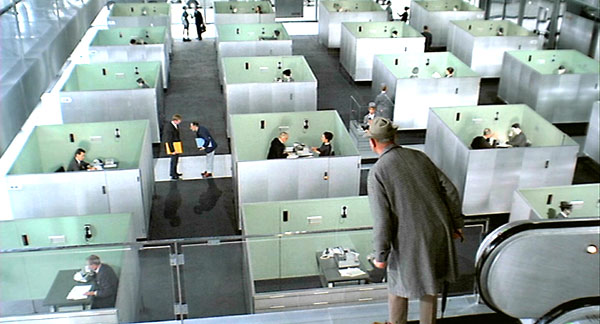An excerpt from “Imagine a World Without Shops or Factories,” Peter Day’s provocative BBC News Magazine piece, which asserts, among other things, that those who attempt to retrofit the Digital Age to the specs of the Industrial Age will be lost:
“What is so extraordinary is how this Fordist model of mass production and this mechanised quest for ever greater efficiency so quickly came to dominate not just car manufacturing but production in general, in nearly every industry. The production-line big corporation became the absolute model for business everywhere in the industrialised world and the concept of work for millions of people. It brought huge prosperity and material goods to people who had never been able to have them before. It created the suburbs where people who made the cars and bought them could live. Then, after 80 years of Fordist Western domination, the rich world manufacturing machine began to move away to other, far flung locations. But here too, in the mighty Chinese industrial revolution and when services were outsourced en masse to India, mass production prevailed. During the last decade of the 20th Century and into the 21st, I felt that the only way for businesses to be sure of survival in the developed world, in the US and in Europe, was to abandon competing with the world’s low-cost producers I had seen emerging so fast in China and many other new industrial nations. I became convinced that the explosion of digital connectivity was the answer.
At the time, the internet was helping to generate vast amounts of information about consumers and their desires and was creating vast fortunes for a new generation of entrepreneurs. Yet when in 1998 I went to visit one of the most celebrated management gurus of all time, he said something that struck me as weird.
The late Prof Peter Drucker, then 87, said: ‘The computer has yet to really influence American business.’ It sounded crazy when so much money had been invested in computing. But he was right – as usual. He meant that the shape and structure and hierarchy of the corporation had not responded to the huge flows of information that companies now had at their fingertips about their customers, should they wish to use it. They had computerised their 20th Century shape, rather than responding to how the computer network was upending much of what they had been set up to do decades before. It was one of the many things they don’t teach you at business school. Companies remained stuck in the 20th Century when life was moving on.”

